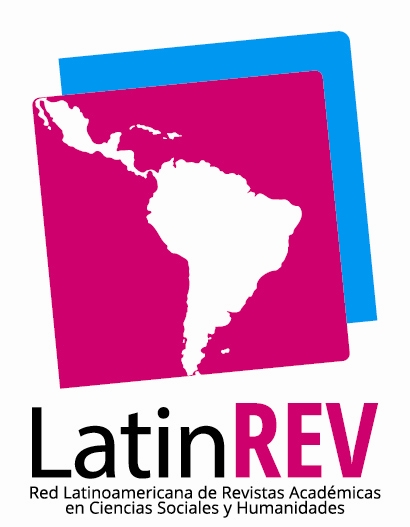Controversies in the ways of inhabiting towards the end of the 19th century and the beginning of the 20th century. The plan for workers' housing of the Mayor Revol in Córdoba
Keywords:
Hygienism, urban planning, housing plan, Pueblo Nuevo, residentsAbstract
The article analyzes how public policy around housing becomes a vector of hygienist ideas of the late 19th and early 20th centuries. The implementation of these policies found their justification in the problematization of certain diseases and the existence of the ranch, expanding a series of prophylactic and moralizing measures. The form of habitat was considered dangerous for the development of the population, and, therefore, had to be fought with modifications in the type of housing construction and in the habitability. In this framework, the Mayor of the city of Córdoba Luis Revol implemented the First Workers' Housing Plan for working families in Pueblo Nuevo (an area in the current Güemes neighborhood). The methodological strategy is qualitative based on the documentary analysis and the information obtained from oral memory workshops. Additionally, primary sources were considered, such as the speeches of public officials and influential personalities from the medical elite and close to the Catholic Church, municipal bylaws and documents referring to urban planning of the period. The result of the analysis seeks to understand the link-up between housing policy and Hygiene in the period 1880-1930.
Downloads
References
Ansaldi, Waldo (1997). “Una Modernización Provinciana: Córdoba, 1880-1914”, en Revista ESTUDIOS, Centro de Estudios Avanzados de la Universidad Nacional de Córdoba, 7(8), 51-80. Recuperado de: https://revistas.unc.edu.ar/index.php/restudios/article/view/13950
Armus, Diego (1984). Enfermedad, ambiente urbano e higiene social. Rosario entre fines del siglo XIX y comienzos del XX en sectores populares y vida urbana. Buenos Aires: Biblioteca de Ciencias Sociales, Nº7. CLACSO.
Bischoff, Efraín (1997). Historia de los Barrios de Córdoba. Sus leyendas, instituciones y gente Tomo I [1986]. Córdoba: Editorial Copia.
Bischoff, Efraín (1952). Esquina de las siete vueltas (evocaciones cordobesas). Córdoba: Editorial Splendor.
Boixadós, María Cristina; Maizón Sofía y Eguía, Mariana (2014). Plazas a los cuatro vientos, Plaza Alberdi, Plaza Libertad, Plaza Colón y Plaza Rivadavia. (Memorias de mi plaza; 1) 1a ed. - Córdoba: Universidad Nacional de Córdoba.
Boixadós, María Cristina (2000 a). Las Tramas de una ciudad, Córdoba entre 1870 y 1895. Élite urbanizadora, Infraestructura, poblamiento. Córdoba: Ferreyra editor.
Boixadós, María Cristina (2000 b). “La vivienda como parte de las políticas de salud del municipio de Córdoba a fines del siglo XIX y principios del XX”, ponencia presentada en: Primeras Jornadas de Historia Regional Comparada, 23 al 27 de agosto del 2000, Porto Alegre, Brasil. Recuperado de: http://cdn.fee.tche.br/jornadas/1/s9a5.pdf (10/10/2020).
Cafferata, Juan (1917). “El saneamiento de la vivienda en la profilaxis contra la tuberculosis. Relación entre las condiciones de la vivienda y la mortalidad por tuberculosis en el Municipio de Córdoba”, apuntes presentados en la Conferencia Nacional de Profilaxis contra la Tuberculosis. Año 4, Nº 10.
Cravino, Ana (2016). “Historia de la vivienda social. Primera parte: del conventillo a las casas baratas”, en Revista Vivienda & Ciudad. Vol. 3, 7-24.
Comisión Nacional Casas Baratas, Memoria de la Comisión Nacional de Casas Baratas 1918-1919.
Díaz Terreno, Fernando (2011). “El lugar de todos. Consideraciones sobre el área central de la ciudad de Córdoba”, Revista Digital Café de las Ciudades, 10 (104). Recuperado de: http://www.cafedelasciudades.com.ar/planes_104.htm (22/05/2014).
Garzón Maceda, Félix (1916). “Historia de la medicina en Córdoba”, en Revista de la Universidad Nacional De Córdoba, 3(3), 4-17. Recuperado de: https://revistas.unc.edu.ar/index.php/REUNC/article/view/5636 (30/11/2021).
Malecki, Sebastián (2015). “La ciudad dislocada. El proceso de urbanización en la Ciudad de Córdoba, 1947-1970”, en Cuadernos de Historia. Serie economía y sociedad Revista del Área Historia del Centro de Investigaciones María Saleme de Burnichón, 13(14), 195-227. Universidad Nacional de Córdoba. Recuperado de: http://revistas.unc.edu.ar/index.php/cuadernosdehistoriaeys (30/11/2021).
Pereyra, Ailen Suyai (2021). Continuidades, tensiones y rupturas en las prácticas del habitar en el marco de las transformaciones de barrio tradicionales. El caso barrio Güemes 2000-2016. Tesis doctoral del Doctorado en Estudios Urbano Regionales de la Universidad Nacional de Córdoba y de la Bauhaus Universität Weimar. Inédita.
Pereyra, Ailen Suyai y Quevedo, Cecilia (2020). “La impugnación a la vivienda-rancho en la Ciudad de Córdoba (Argentina) entre los Siglos XIX y XX”, en Diálogos Revista Electrónica de Historia de la Universidad de Costa Rica, 21(2), 247-269. Recuperado de: https://revistas.ucr.ac.cr/index.php/dialogos/article/view/41308/42952 (30/11/2021).
Quevedo, Cecilia (2018). Estados locales y alteridades indígenas. Sentidos sobre la inclusión habitacional en El Impenetrable. Córdoba: Editorial del CEA-FCS-UNC. Recuperado de: https://rdu.unc.edu.ar/handle/11086/11767 (30/11/2021).
Quevedo, Cecilia. y Pereyra, Ailén Suyai (2018). “Hedor y pulcritud: Estado-nación, alteridades y construcción moralizada de la habitabilidad en Argentina”. Ponencia presentada en el XVIII Congreso Internacional de la Asociación Española de Americanistas, Castellón de la Plana, España, 10 al 13 de julio de 2018.
Salessi, Jorge (1995) Médicos maleantes y maricas. Higiene, criminología y homosexualidad en la construcción de la nación Argentina. (Buenos Aires: 1871-1914). Serie: Estudios culturales. Editor: Beatriz Viterbo; Edición: 1. ed (1 de enero de 1995).
Selva, Domingo (1901) “Consideraciones sobre edificación obrera”, en Anales de la Sociedad Científica Argentina, Tomo LII, Buenos Aires. Recuperado de: https://archive.org/details/analesdelasocied51521901soci (30/11/2021).
Suriano, Juan (2017). Problemas e interrogantes de la historia social en torno a la desigualdad, Revista Electrónica de Fuentes y Archivos, año 8, Nº 8, 24-42.
Suriano, Juan (1984). “La huelga de inquilinos de 1907”. En el libro Sectores populares y vida urbana, 201-233, CLACSO.
Downloads
Published
Issue
Section
ARK
License
Copyright (c) 2021 Ailen Suyai Pereyra

This work is licensed under a Creative Commons Attribution 4.0 International License.






